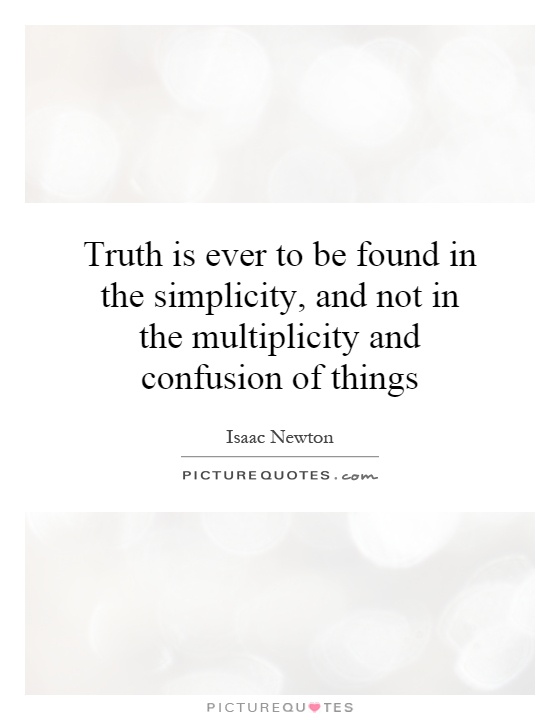Truth is ever to be found in the simplicity, and not in the multiplicity and confusion of things

Truth is ever to be found in the simplicity, and not in the multiplicity and confusion of things
Isaac Newton, the renowned physicist and mathematician, is often associated with the quote “Truth is ever to be found in the simplicity, and not in the multiplicity and confusion of things.” This quote reflects Newton’s belief in the power of simplicity and clarity in understanding the natural world.Newton’s most famous work, the Principia Mathematica, laid the foundation for classical mechanics and the laws of motion. In this groundbreaking work, Newton demonstrated that complex phenomena such as the motion of planets could be explained by simple and elegant mathematical principles. By distilling the complexities of the universe into a few fundamental laws, Newton was able to uncover the underlying truths that govern the physical world.
Newton’s emphasis on simplicity can also be seen in his development of calculus, a mathematical tool that revolutionized the field of mathematics. By introducing the concept of limits and derivatives, Newton was able to solve complex problems with remarkable ease and elegance. This emphasis on simplicity and clarity in mathematical reasoning has had a lasting impact on the field of mathematics and science as a whole.












 Friendship Quotes
Friendship Quotes Love Quotes
Love Quotes Life Quotes
Life Quotes Funny Quotes
Funny Quotes Motivational Quotes
Motivational Quotes Inspirational Quotes
Inspirational Quotes